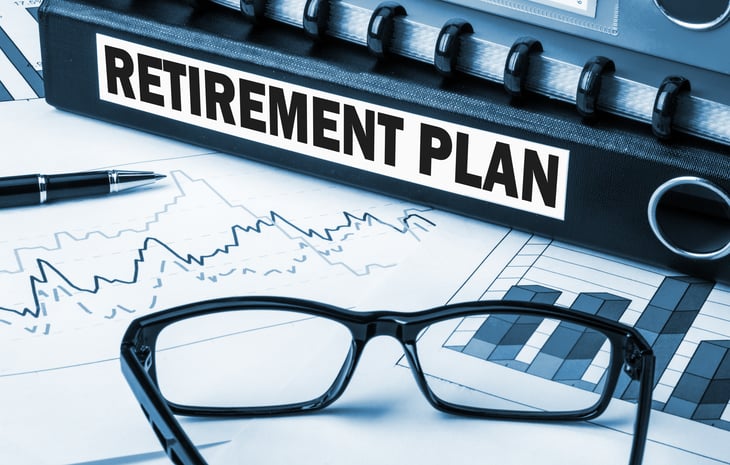
Editor's Note: This story originally appeared on NewRetirement.
Believe it or not, European countries have the most secure and best retirements. However, Americans can emulate their type of financial security here using their own resources.
According to the 2021 Natixis CoreData Global Retirement Index, 7 of the top 10 best countries for retirement are located in Europe, out of all the nations analyzed in Natixis’ study.
The index ranks countries based on four themes covering key aspects for welfare in retirement:
- Health: Good health and access to quality health care
- Material well-being: How well can retirees support themselves
- Financial: Economic factors like government services, inflation, interest rates, taxes, and other economic factors
- Quality of life: Happiness and environmental considerations
The top 10 nations for retirees in 2021 are: Iceland, Switzerland, Norway, Ireland, Netherlands, New Zealand, Australia, Germany, Denmark, and Canada. (The United States is now ranked as the 17th-best place to be retired.)
Key factors contributing to European countries’ high rankings include high per capita wealth, sound financial systems, universal health care systems, and government policy geared toward ensuring high standards in terms of the environment and the overall well-being of citizens.
The United States, meanwhile, is benefiting from increasing economic stability but is negatively impacted by government indebtedness, rising inflation rates, income inequality, and a health care system that doesn’t live up to its highest-in-the-world expenditures.
The Three Legs of a Retirement Stool

Employers, governments, and individuals comprise the three legs of the global retirement savings stool, and each has a role to play in improving the state of savings around the world.
In most countries, a secure retirement depends on an individual receiving benefits from the three legs of that stool. In the United States, that means Social Security and Medicare from the government, and pensions or savings plans through your employer (as well as personal savings).
However, savings rates are lower than they need to be in the United States and traditional pensions are becoming a thing of the past. With retirees increasingly needing to take control of their financial future, here are a few steps to take for a safe, financially secure retirement in the U.S.
How to Retire Like a European Socialist Even if You Are a U.S. Citizen (and Capitalist)

While Americans can’t entirely match the conditions of European retirees, they can use the following steps to come close.
1. Have a Financial Plan

Responsibility for financial security in retirement is falling even more heavily on individuals than ever before, according to the Global Retirement Index — a trend that’s likely to continue as government resources in countries around the world become scarcer and budgets continue to be strained.
Leading up to retirement, carefully planning a retirement path could be the most important step someone could take to achieve financial security later in life.
“It is becoming increasingly apparent that to ensure financial security in retirement, individuals need to take personal ownership of their destiny and view planning and saving for retirement as a serious, conscious and strategic pursuit,” the Natixis report says, adding that the role of the financial advisory community has “never [been] more critical.”
2. Optimize Social Security Benefits

Social Security benefits are an important part of many Americans’ retirement income.
That’s why optimizing Social Security benefits can be crucial to achieving a secure retirement. The average Social Security retirement benefit in 2021 was about $1,555. However, according to the Center for Retirement Research at Boston College, 90% of Americans begin collecting Social Security retirement benefits at or before their full retirement age. The most popular age to start is 62, the earliest age possible — chosen by 42% of men and 48% of women.
Delaying the start of benefits can significantly boost your lifetime payout from the system.
3. Save, Participate in Employee Plans, and Create an Income Stream for Yourself

Many of these European countries have pension plans that enable their citizens to retire with a guaranteed income stream.
Pensions in the United States are now difficult to come by. It is therefore important that you save robustly for retirement on your own and know how to turn those savings into an income stream.
Explore 18 retirement income strategies for lifetime wealth and peace of mind.
4. Plan for Health Care Costs and Be Proactive About Your Health Care

Even if the U.S. government does spend a lot of money on health care, many retirees are surprised by the high out-of-pocket costs of medical expenses, even with Medicare coverage. And much has been written lately about the shortages of doctors serving Medicare patients.
One way to protect yourself is to explore Medicare Supplemental insurance, which can minimize your out-of-pocket expenditures and may help you get appointments with the doctors you choose.
Furthermore, in the United States, it is critically important to plan for medical costs. You may also want to explore 12 surprising ways to save on health care costs.
5. Plan for Economic Factors That May Impact Your Financial Security

Economic forecasting is impossible, but today’s retirees face the potential for rising interest rates and rising inflation economic factors that we have not had to deal with for a long time.
Consider:
- What impact might inflation have on your retirement security?
- Make sure any debt you are carrying is at the lowest possible interest rate now. And, reconsider future plans to take on debt if interest rates continue to rise.
- Are you ready to weather a downturn in the stock market? Determine and maintain your optimal asset allocation based on your goals and timeline.
6. Find Ways to Enjoy Working Longer

The average retirement age in Iceland (the best country to be retired) is 67. So, if you want to retire like a European socialist, maybe you’ll need to work a bit longer.
Work can be a grind. It can also be immensely enjoyable. If you need income, but want to retire, consider switching jobs. Do something that gives you pleasure while also providing some kind of paycheck.





Add a Comment
Our Policy: We welcome relevant and respectful comments in order to foster healthy and informative discussions. All other comments may be removed. Comments with links are automatically held for moderation.